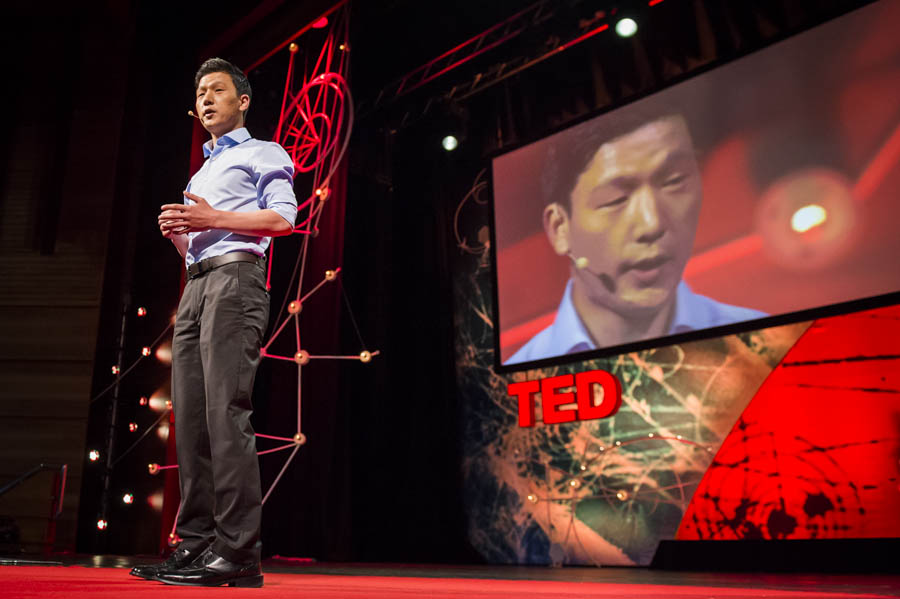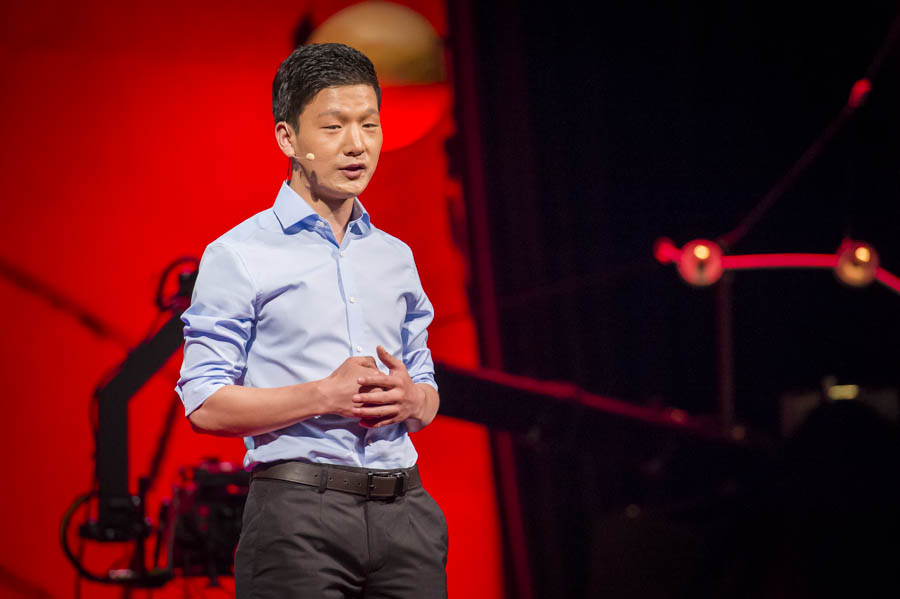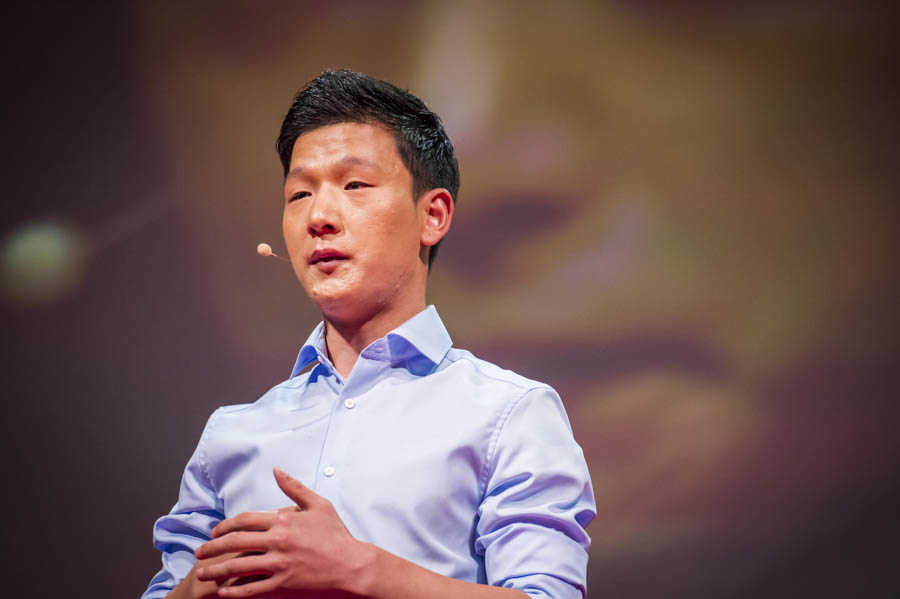“North Korea is often in the news, conjuring images of missiles, weapons, dictatorships and sometimes eccentric habits,” says Adrian Hong, TED Fellow and guest curator of Session 9, Forces of Change at TEDGlobal 2013. “But underneath all that bluster is a country racked by starvation, by oppression, by fear, by concentration camps. In many ways, it represents a stain on the soul of humanity that it exists this way in 2013.” With these words, he introduces us to Joseph Kim, who at the age of 16 escaped starvation in North Korea to find hope and a new chance at life in the United States.
In his quietly powerful first-person account, Joseph tells us about a family — a father, mother and older sister — constantly struggling against poverty. In the Great Famine of 1994, the 4-year-old Joseph and his sister would look for firewood from 5am until midnight. More than 1 million North Koreans died of starvation during that time. No one thought about politics and freedom, he says. “Hunger is humiliation. Hunger is hopelessness.”
In 2003, when Kim was 13, he watched his father starve to death. That same year, his mother disappeared, and his sister left for China, promising to come back soon with money and food. As they had never before been parted, Joseph didn’t hug her goodbye — “It was the biggest mistake I ever made.”
Suddenly, Joseph was an orphan, left to survive on his own by begging, scavenging and taking occasional work in the coal mines, 33 meters underground with no protection, up to 16 hours a day. “When I could not fall asleep from bitter cold or hunger pains, I hoped the next morning my sister would come back to wake me up with food. That hope kept me alive.” After three years, understanding he could no longer survive this way, he decided to go to China to look for her himself.
In February 2006, Kim made the risky crossing during the day because he was afraid of the dark, knowing that if the North Korean border control caught him he would be shot, and if the Chinese authorities caught him he’d be sent back to face severe punishment. Once in China, he was continuously anxious about being captured, but luckily found help in an underground shelter run for North Koreans. Later that year, an activist helped him escape to the US as a refugee.
Kim was adopted by a foster family and sent to high school — something that seemed “ridiculous” to Kim, who’d never even been to middle school. One day, at dinner, Kim wanted an extra chicken wing, and seeing there was not enough for everyone to have seconds, didn’t take it. He looked down and saw it on his plate — his foster father had given him the last wing. “It made me think of my biological father, who sacrificed everything for me even if he was hungry. I felt suffocated that I had so much food in America. My only wish that night was to cook a meal for my father. I thought about what else I could do to honor him, and decided to take school seriously for the first time in my life.” Kim made the Dean’s list in his first semester of high school.
“That chicken wing changed my life,” says Kim. “Hope is personal. Hope is something that no one can give to you. You have to choose to believe in it. You have to make it yourself.” He asks his audience for help, saying, “My foster father didn’t intend to change my life — and in the same way you may also change someone else’s life with the smallest act of love. I confidently believe that your act of love and caring can also save another Joseph’s life, and thousands of others who are hoping to survive.”
At the end of Kim’s talk, Hong asked whether, on the off chance that his sister might see this talk online, he would like to send her a message. Here’s what he said:
“It has been already ten years that I haven’t seen you. I just wanted to say that I miss you and I love you, and I know you promised me that you would come back with food and money soon, but although it would be great to have food from you, please don’t worry about that. I’m so sorry. It’s okay if you can’t make money or bring food, but please come back to me and stay alive. I still haven’t given up my hope to see you. I will live my life happily and study hard until I see you, and I promise I will not cry again. I’m just looking forward to seeing you, and please come back. If you can find me, I will also look for you and I hope to see you one day.
He also sent a message to his mother: “I know I haven’t spent much time with you, but I know you love me and probably think about me and pray for me. I just want to say thank you for letting me be in this world. Thank you.”
Joseph Kim’s talk is now available for viewing. Watch it here »



Comments (14)
Pingback: Hope within borders: The impending movement of the North Korean People | South Korea Times of News
Pingback: World Food Day: The world is your oyster | Leah's Life: Pearls and Oysters
Pingback: From hunger to hope: Joseph Kim at TEDGlobal 2013 | Joseph Cho Kim
Pingback: Joseph Kim: The family I lost in North Korea. And the family I gained. - Loss of Privacy
Pingback: From hunger to hope: Joseph Kim | Joseph C. Kim NYC
Pingback: Joseph Kim speaking about North Korea | Kim Chai-Whan 김재환
Pingback: In case you missed it: Some highlights of day 3 of TEDGlobal 2013: Think Again | BizBox B2B Social Site
Pingback: From hunger to hope: Joseph Kim at TEDGlobal 2013 | Joseph C. Kim